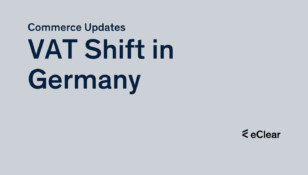The European Union and Great Britain are starting a new round of negotiations on a post-Brexit trade agreement. In London, the officials hope to reach an agreement by the end of the summer. The British government rejects an extension of the transition period – even if it means a hard Brexit. If it is impossible to regulate future trade relations contractually, traders would have to pay import turnover tax from 2021 on, for example, for deliveries with a value of up to 135 pounds of goods on behalf of the seller. If this amount is exceeded, the recipient pays the customs authorities himself. Since every shipment is subject to customs duty, this not only leads to additional expense for the recipient and sender but also extends delivery times, interrupts supply chains and increases costs.
But what are the possible arrangements? — A look at the European states that do not belong to the Union:
So, what could the future hold? Let’s look at some examples from European states that are not part of the Union. Norway, Iceland, and Liechtenstein, for instance, are part of the European Economic Area (EEA). This membership brings with it a host of trade facilitations, including comprehensive duty-free access and the adoption of Union law relating to the internal market. The EU has also proposed a similar ‘half EU membership’ to the British, but they have rejected this, preferring to seek a different path.
The conclusion of many bilateral agreements regulating trade in goods seems more likely, but it will take time and effort. The previous agreement between the EU and Switzerland could serve as a template for this. A total of 120 contracts govern relations between the Union and Switzerland. However, this only works with problems, such as adopting EU standards for traded goods and services. While Switzerland has transposed many EU standards into its law and pays into the EU budget, the focus for Great Britain is on achieving independence. By EU standards, Great Britain is prevented from concluding a far-reaching trade agreement with the USA.
Much remains to be clarified
There are still many uncertainties for German online retailers. Among other things, the 14-day right of revocation, traders’ warranties and the reversal of the burden of proof after six months need to be clarified. The UK is also expected to introduce one or two special rules that merchants must consider in their procedures. ClearVAT will keep you up to date with our products.







